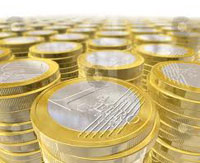 At a time when Britain’s new government is embarking on a course of action that could lead to an exit from the European Union, property investors are finding ways of getting into Europe.
At a time when Britain’s new government is embarking on a course of action that could lead to an exit from the European Union, property investors are finding ways of getting into Europe.
Europe is suddenly looking rather attractive. Why the turnaround? Some of it is down to economics. The eurozone has had a torrid few years. A deep recession in 2008-09 was followed by a second recession from 2011-13. It coincided with fears that the euro was heading for a break-up, with consequences as devastating as Lehman Brothers’ collapse.
The eurozone crawled out of that recession unconvincingly. Even last autumn, stagnation seemed to be the natural order of things for the countries that had adopted the single currency. Growth surprised on the upside at the end of 2014 and it has surprised on the upside so far this year. Whisper it, but in Q1 the moribund eurozone grew by 0.4%, outstripping Britain’s 0.3% expansion. That was not part of the script.
Part of the reason for the growth revival is also a reason for the attractiveness of the eurozone for property investors. Three years ago Mario Draghi, the European Central Bank president, said he would do whatever it takes to hold the euro together. The launch this year of the ECB’s version of quantitative easing has both boosted growth and, when QE has been launched in other economies, boosted asset prices, including property.
The final ingredient has been the performance of the euro. The ECB, as well as launching QE, has cut interest rates at a time when other central banks are contemplating when to hike rates. The result has been a weaker euro, which makes European property increasingly attractive for overseas investors.
According to Knight Frank’s European Quarterly, commercial property investment volumes in Q1 were 44% up on a year earlier, reaching €50.1bn (£36bn), making it the strongest first quarter since 2007. The firm predicts €220bn of investment for the year, setting a new post-crisis record. “The growth in investment will be supported by the improving European outlook and cross-border activity may be stimulated by the weakness of the euro,” says Matthew Colbourne, associate of international research at Knight Frank.
Colliers International, citing Draghi’s €1.1tn QE programme as a key factor, says cross-border property investment in Europe hit €38bn in the first quarter, double its level a year earlier. Cluttons predicts that euro weakness and visa-free access to the Schengen area will boost European property investment from the United Arab Emirates and other parts of the Middle East.
Though Britain continues to attract property investment from outside Europe, overseas investors are looking to economies that were regarded as failing. The assumption is that the dangers of euro break-up have passed.
Can Europe’s revival go on? The elephant in the room is Greece. Though a Greek exit now would be less damaging than three years ago, it would still be a setback, raising doubts about whether other countries could stay in the euro. It is unlikely but cannot be ruled out. Otherwise, this European rally probably has further to run.
David Smith is economics editor of The Sunday Times











